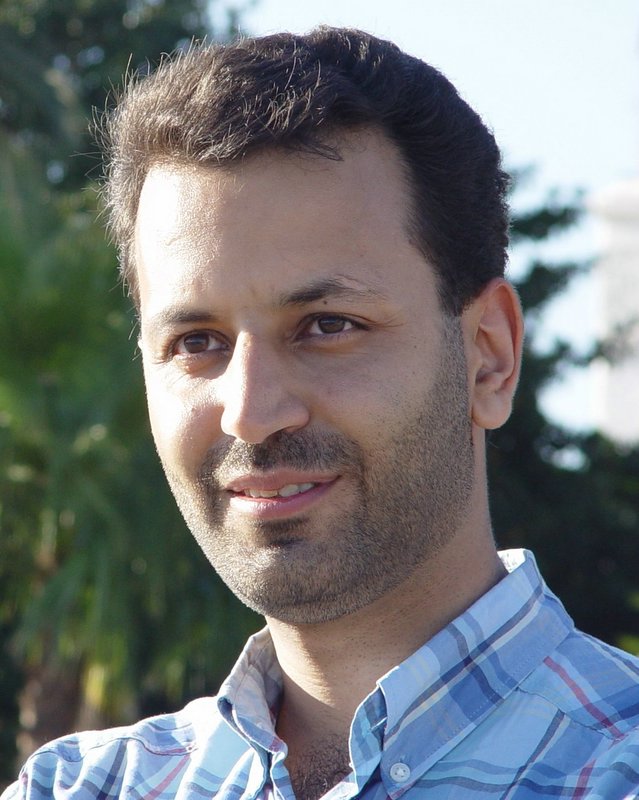My Google Scholar Profile
Click here for my Google scholar profile.
My Research Group
Click here to see my recent activities at Game Theory and Mechanism Design research lab.
Collaborations
I've had the privilege of knowing and working with:
- Prof. Jean-Pierre Hubaux, EPFL, Switzerland.
- Prof. Thierry Turletti, INRIA Sophia-Antipolis, France.
- Prof. Hossein Saidi, IUT, Iran.
- Prof. Jean-Yves Le Boudec, EPFL, Switzerland.
- Prof. Peter Marbach, University of Toronto, Canada.
- Prof. Tamer Basar, UIUC, USA.
- Prof. Tansu Alpcan, University of Melbourne, Australia.
- Prof. Walid Saad, Virginia Tech, USA.
- Prof. Chadi Barakat, INRIA Sophia-Antipolis, France.
- Prof. David Basanta, Moffitt Cancer Center, USA.
- Prof. Marco Archetti, School of Biological Sciences, University of East Anglis, UK.
- Prof. Mark Felegyhazi, Budapest University of Technology and Economics, Hungary.
- Prof. David C. Parkes, Harvard University, USA.
- Prof. Marwan Krunz, University of Arizona, USA.
- Prof. Michele Zorzi, University of Padova, Italy.
My Research Interest
The focus of my research is on wireless and mobile computing, with an emphasis on security, privacy,
spectrum sharing, and adaptive communications. I am interested in this domain because of the direct
impact mobile computing has on our everyday lives. The recent advancement in the Internet, wireless
networks, spectrum allocation techniques, and the new generation of wireless devices, such as cognitive
radios, triggered my enthusiasm to pursue research towards the security and privacy of wireless and pervasive
communication .
Research work in wireless networks can be broadly divided into two main categories:
(i) system design
and analysis, (ii) protocol implementation and evaluation.
During my research career at INRIA
Sophia-Antipolis in France and EPFL in Switzerland, I had experiences in both fields.
Hereafter, you can find a short list of my research interests.
Security Games in Computer Networks
 Security mechanisms often require the active contribution of several parties.
Using game theory, the possible strategic and selfish behaviors of parties in security mechanisms can be captured and analyzed.
In other words, the game-theoretic study of security mechanisms can take into account the selfish considerations of
individual agents and identify the conditions under which each possible strategy performs best.
Security mechanisms often require the active contribution of several parties.
Using game theory, the possible strategic and selfish behaviors of parties in security mechanisms can be captured and analyzed.
In other words, the game-theoretic study of security mechanisms can take into account the selfish considerations of
individual agents and identify the conditions under which each possible strategy performs best.
Security of Online Advertising
 Internet economy relies on online advertising as the main business model for monetizing online content.
Over the last decade, online advertising has become a major component of the Web, leading to large annual revenues
(e.g., $26.04 billion in US in 2010). Given the ad revenue at stake and the lack of legislation against
ad fraud in many countries, fraudsters have economic incentive to engage in fraudulent activities and exploit
online advertising systems. In our work, we evaluate the threat to online advertising systems, identify
vulnerabilities and exploits of the system, propose countermeasures and evaluate economic incentives of
the stakeholders to deploy secure solutions.
Internet economy relies on online advertising as the main business model for monetizing online content.
Over the last decade, online advertising has become a major component of the Web, leading to large annual revenues
(e.g., $26.04 billion in US in 2010). Given the ad revenue at stake and the lack of legislation against
ad fraud in many countries, fraudsters have economic incentive to engage in fraudulent activities and exploit
online advertising systems. In our work, we evaluate the threat to online advertising systems, identify
vulnerabilities and exploits of the system, propose countermeasures and evaluate economic incentives of
the stakeholders to deploy secure solutions.
Wireless Community Operator
 Social community operators use unlicensed bands and rely on the access points activated by subscribers
who constitue a community of users. Relying on access points activated by users provides a viable alternative
to the deployment of costly base stations and to the use of licensed spectrums for wireless communication.
However, as the willingness of users to join such a community determines its evolution, there is no guarantee
that the wireless social community network will reach full coverage in the whole service area.
This willingness typically depends on various factors, such as the subscription fee, the network and service
preference and the mobility of users.
Presently, FON is the largest wireless social community operator.
Social community operators use unlicensed bands and rely on the access points activated by subscribers
who constitue a community of users. Relying on access points activated by users provides a viable alternative
to the deployment of costly base stations and to the use of licensed spectrums for wireless communication.
However, as the willingness of users to join such a community determines its evolution, there is no guarantee
that the wireless social community network will reach full coverage in the whole service area.
This willingness typically depends on various factors, such as the subscription fee, the network and service
preference and the mobility of users.
Presently, FON is the largest wireless social community operator.
